An American – university – in Kosovo
Chris Hall is president of a three-year-old college that hopes to instill values of free exchange and civil society.
By Robert Marquand |
Pristina, Kosovo - A few years ago, Chris Hall was a state senator from midcoast Maine. He had quit a job as a steel and mining executive, deciding "never again" to do the weekly commute from Portland to New York. But a defeat in 2004 opened the door for Mr. Hall to become the first president of one of the more unusual colleges in Europe: the American University in Kosovo.
After decades of repression and war, Kosovo's schools were in tatters. A privileged few studied abroad. But AUK, formed three years ago with funds from the Albanian diaspora and the only multiethnic private college here, aspires to help the somewhat battered new state build its next generation of leaders. It's a mission the Oxford-educated Hall deeply believes in.
Kosovo's declaration of independence on Feb. 17 may have brought angry protests from Serbs 30 miles away on the Ibar River, but Hall has a college to run. He sits in on statistics classes, juggles scholarships and budgets, coordinates with Rochester (N.Y.) Institute of Technology, which grants AUK degrees, and hires Fulbright scholars.
He's added a public policy program to what is now a business degree and helped create one of the freest weekly political forums in Pristina, albeit one in English. He wants the small school to breathe the values of civil society and intelligent democratic sentiments.
Just last week, Hall was in Chicago signing a partnership with the Illinois Institute of Technology for an AUK master's in law, which will be the only such degree offered in Kosovo.
Most important, Hall and many students say, AUK offers Kosovar youths a school where they encounter Western-style debates, interaction, and educational standards.
Student Tefta Kelmendi first considered going abroad for college, since there were "many other possibilities offered to Kosovar students for study abroad and scholarships," she says. But AUK allowed her to "be part of all these significant changes that are taking place" in Kosovo, so she stayed.
The college opened in 2003 in a crowded house with few facilities. But two years ago, AUK moved to a small complex in a hilly suburb, with lecture halls, information-technology facilities, and a cafeteria-cum-student hangout. Some 34 professors – from the Balkans as well asthe US – staff the school. Enrollment is 450, but Hall and company plan for 600. Last year, the school celebrated its first graduating class, of 57.
Of those, more than 40 now work in Kosovo, a point of pride for Hall and the AUK board, whose members include prominent American Albanians like businessman Richard Lukaj and Ron Cami, a partner of the New York law firm Cravath, Swaine & Moore. Students come mostly from the Albanian diaspora in 11 other countries, including Syria, Nigeria, and Algeria. Four Serbian students attend – and have not left despite Kosovo's declaration of independence.
AUK is "a success story in a part of the world with few success stories at this point," says Louis Sell, a former US diplomat and an AUK board member who helped bring Hall to the school. Mr. Sell feels that after Kosovo's declaration of independence, a school of public service at AUK will make a contribution. The school is seeking $3 million in scholarships as part of a larger Kosovo package now before Congress. Kosovo "is a part of Europe that is nominally Islamic, but overwhelmingly pro-American. The US has been quite cautious in the money it gives. But we hope that is changing," Sell adds.
After Hall lost his senate seat in 2004, he ran into Sell, who lives nearby. Sell knew that Hall, a Briton turned naturalized American, had a longstanding interest in the Balkans. Hall was in one of the first tour groups to enter Albania in 1990 after it had been closed for decades. Sell, with other US diplomats, had worked with the Fund for the Reconstruction of Kosovo, made up of Albanians, to establish a nonprofit college in Pristina with $4 million left over from the monies collected from the diaspora.
Hall, who was going to be in Belgrade, agreed to pop down to Pristina. While the college was "this overstuffed house on a hill," as Hall recalls, he was "deeply impressed" with students. "They don't have the worldliness you find in so many American kids of this generation," he says.
Before 1999, Kosovar students lived in a virtual police state under the Serbs. After NATO intervention, they were going to schools that "suffered every conceivable form of setback. But Hall found "a degree of idealism and passion for learning that I had not expected.... [We] don't have the drugs and crime you would expect, either."
Hall taught public policy courses for two years, then agreed to be president in the summer of 2007. That meant living away from his wife, Jackie Wardell, who heads a staff of 80 at a community bank on the Maine coast that does a small business lending to women and minorities.
"We thought about it long and hard. It took a lot of searching," Hall says, adding that his administration's motto in working out knots and kinks in a highly sensitive locale is "to be diplomats – friends with everybody and allies of nobody."
"Kosovo has a population of incredible talent and energy; I wouldn't be here if I weren't optimistic," he says. Some of his biggest battles in what he calls "management by walking around" is raising faculty expectations of students: "I don't want to hear that we have to go easy because these are poor Kosovars. They have the talent to be every bit as good as RIT students."
Robert McCloud, an IT professor here on a Fulbright from Sacred Heart University in Connecticut, describes Kosovo youths as a bright and innovative generation who haven't been exposed to enough differing ways of thinking. But being isolated, he says, "They are much too self-taught." he says. In his graphics classes he tries to get them to expand into different types of software. "Everything is done in Photoshop. They buy the software for $1.50. So finally I tell them, don't show me any more Photoshop!"
For Hall, AUK's success is measured by the help it offers the new state. With a pedigree name (American University) and English fluency requirement, in gritty Pristina the school has a reputation as elite. Only about 20 percent of students are on scholarship, and the tuition is $4,000 a year, hefty by Kosovo standards. Still, an AUK degree is not "a passport out of town," Hall says.
Hall, who deeply loves Maine and its people, says he is giving AUK "three years, about right for this kind of commitment."
******************************************************************
Kosovan Activist Defies Ethnic Hatreds To Rebuild Civic Society
Valdete Idrizi works for healing in ethnically divided city of Mitrovica

Washington -- Optimism and trust are in short supply in Mitrovica, a city in northern Kosovo, where the Ibar River divides ethnic Serbs in the north from ethnic Albanians in the south. Despite the fear, bitterness and anger that continue to divide the two peoples, Valdete Idrizi, herself displaced by the violence that has racked Kosovo, defies ethnic hatreds and insists on reaching out to bridge the divide.
Since 2000, Idrizi has been the executive director of Community Building Mitrovica (CBM), a nongovernmental organization focused on grassroots projects aimed at bringing the inhabitants of Mitrovica and its region -- Albanians, Serbs, Roma, Ashkali, Bosniaks and other minorities -- back together to live in peace and prosperity. CBM programs focus on seven priority areas: youth, women, minorities, interethnic dialogue, culture, media, and the possibility of returning home for thousands of internally displaced persons (IDPs).
To date, CBM, with a multiethnic staff, has sponsored more than 200 projects in and around Mitrovica. Most recently, CBM extended its activities in promoting freedom of speech by launching the trilingual M-Magazine.
Most remarkable of all, Idrizi and CBM are respected by all sides, having earned the trust of people living in a region riven with suspicion and mutual mistrust.
An ethnic Albanian, Idrizi was driven from her home north of the Ibar River when the Serbs took over the area in 1999. Brutal riots further divided Mitrovica in March 2004. Idrizi has had to move eight times to ensure her safety and remains unable to visit the graves of her parents or the home she owns in the Serb-held parts of the city.
Despite these hardships, she refuses to dwell on the unhappy past and keeps her spirit focused on the future. Risking beatings, kidnapping and death, Idrizi continues to extend the hand of friendship, including counseling hope to Serbian women and IDPs who have suffered violence and dislocation as she has.
On March 10, Idrizi’s efforts were recognized by the United States when she was presented with the International Women of Courage Award at the State Department. In its second year, the award is the result of Secretary of State Condoleezza Rice’s desire to recognize women around the globe who have shown exceptional courage and leadership in promoting women’s rights and advancement.
Other 2008 awardees are female activists from Somalia, Fiji, the Palestinian Authority, Pakistan, Paraguay, Iraq and Afghanistan, who were selected from 93 nominees submitted by U.S. embassies around the world.
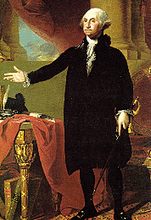
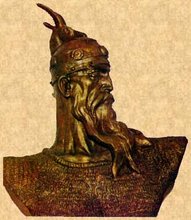
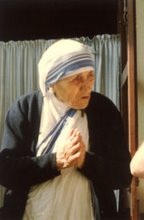







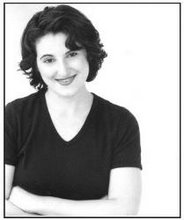
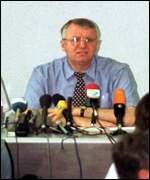









1 comment:
More "Luuuv" from our Serb friends:
http://www.bosnia.org.uk/news/news_body.cfm?newsid=2381
From the cultural front of the battle for Kosovo
Ivan Čolović, 14 March 2008
Devastating review, by one of Serbia's most distinguished cultural critics, of a heavyweight book on Kosovo just published in Belgrade which laments the historic failure by Serbia, after it annexed the territory in 1912, to adopt a 'final solution' to the problem of its Albanian population
I too agree that the main question is: 'Why did Serbia lose Kosovo?' In other words:
'Why has it been the case for a few days now that this territory remains in Serbia only "forever", rather than in other ways too?'
We have heard, and continue to hear, what politicians, analysts, priests and football fans think about this. Patriotic writers and other artists, sensing probably which way things were going, had made their views on the causes of the loss clear even earlier. We see that collective prayers, political declarations and speeches, slogans on banners and the stones wielded by alleged football fans, largely agree that Kosovo has been granted independence - or as is commonly said 'stolen' from Serbia - only because this corresponds to the interests of the United States and other Western powers. And, as always, might is right!
But what do our scholars say about it? Have they a different or at least a more convincing reply to the question of how it happened that Serbia lost Kosovo? Where, if not in scholarly works, should we seek to find sober - or as people say these days tenable - thinking about Kosovo, or for that matter about any important social and political subject? Luckily for us, Serbian scholars are hard at work, they are studying Kosovo too, and sometimes they even publish the results of their scholarly endeavours.
An extensive scientific study has indeed just been published in Belgrade, not a moment too soon, with the title: Kosovo and Metohija; and this, according to the introduction, should
'help us to find our way in the chaos of the highly complex and fateful problems of Kosovo and Metohija, and steer us towards practical solutions'.
Wonderful! This is what we have been waiting for; this is what we need: new ideas, a new orientation, scientifically-based solutions for overcoming chaos.
The scholarly quality of the book Kosovo and Metohija is at first glance quite unexceptionable. The author, Dr Milovan Radovanović, is a noted geographer, an emeritus professor of Belgrade University, former director of the Geographical Institute of the Faculty of Science and Mathematics in Belgrade, former director of the Geographical Institute of the Serbian Academy of Arts and Science, professor at the University of Banja Luka, bearer of the 'Jovan Cvijić' medal, honorary member of the Geographical Society of Macedonia, associate of the Serbian-American Centre and of the State Negotiating Team for Kosovo and Metohija.
The book was published by 'Službeni glasnik', a leading Serbian publisher, on the basis of a recommendation from two academicians, Vladimir Stojančević and Miloš Macura, with an introduction by Dr Mirko Grčić, professor at the Faculty of Geography in Belgrade, and a brief authorial biography by Dr Milan Bursać, professor of the Faculty of Science and Mathematics at the University of Kosovska Mitrovica. The book contains appendices with extracts from the recommendations, a bibliography of the author's works, three tables and a dozen maps. This adds up to over 600 large-format pages. Impressive indeed!
The reader will be additionally impressed by the large number of fields that the book covers. Its very subtitle evokes the breadth of the author's scientific approach to Kosovo: 'Anthropo-geographical, historico-geographical, demographic and geo-political foundations'.
In fact, however, having read the contents and leafed more carefully through the book, the reader will discover that the subtitle might have been considerably longer, and that Dr Radovanović has modestly listed only four scientific disciplines among the far greater number of disciplines, sub-disciplines and scientific research areas whose results and methods he has used in his work on Kosovo. These are listed as follows: geo-strategy, geo-economy, geo-demography, political geography, cultural geography, ethnography, ethno-demography, ethnonymy, ethno-statistics, ethno-psychology, ethno-cartography, onomatology, anthroponomy, demo-politics, historical demography, political history, sociology, etymology, characterology, biometry, eugenics, cultural history, economy... - it is probable that other disciplines or sciences are included which I have missed on a first reading of the book.
Well, then, what conclusion does Dr Radovanović reach on the basis of this rarely seen concentration of multifarious scientific knowledge about the causes of Serbia's loss of Kosovo? Why the loss, how did it happen? Briefly, Kosovo was lost - this interdisciplinary study reveals - because the Serbians, who in 1912 occupied the territory, allowed the Albanians to remain there instead of removing them altogether, i.e. implementing the so-called 'final solution of the Albanian question'.
This conclusion of Dr Radovanović's magisterial study may appear at first glance too modest, disproportionate in relation to the grandiose scientific apparatus used to deduce it, and also unoriginal. For, indeed, neither the idea contained in the conclusion nor the term 'the final solution' are new. The author himself does not deny this, because for him, undoubtedly, scientific truth is far more important than who may have discovered or formulated it. He does not hide, for example, that he took the idea of the fatefully lost opportunity on the part of the Serbs to get rid of the Kosovo Albanians finally and permanently from Vaso Čubrilović: that -according to Dr Radovanović -
'superb historian... experienced revolutionary and zealous worker in the field of the revival of brutally crushed Serbdom'.
He quotes with approval parts of what we would today call his cult text from 1937, in which Čubrilović accused the government of the day for not having seized the land in good time from the Kosovo Albanians and deported them to Albania, instead conducting a policy towards them based on European civilisational standards, or as Čubrilović said:
'letting the Albanians become accustomed to Western European notions of private ownership in land'.
The Albanians' primitive civilisation had taught them that everything belongs to the conqueror; but the civilised Serbs, when establishing their government in 1912, had left the Albanians with both life and property, to their great astonishment. So who are we to blame?
In Dr Radovanović's view, Čubrilović's analysis remains relevant to this day and provides a valuable guiding idea.
'His logic, his autopsy, his judgement, the significance and order of the facts he examines, are accurate and confirmed by the evolution of events up to the present day, to such an extent',
he writes,
'that they represent an exact deterministic (functional) system to which one cannot add or subtract anything, except a demo-statistical component'.
The great modesty of the author should not lead us, however, to overlook his own personal contribution to the elaboration and affirmation of ideas about the solution of the Albanian question on sound national foundations, in other words its final solution.
Vaso Čubrilović had it easy at the end of the 1930s, when ideas about final solutions to conflicts between races and peoples enjoyed scientific and political prestige among a goodly proportion of European scientific and political thinkers. Today, in the post-Auschwitz world, when it is believed - probably for unscientific reasons - that the price of final solutions is unacceptably high, scientists and patriots who advocate them require very much greater courage. It is fortunate, however, that Dr Radovanović can count on the support of part of our public, and - which is particularly encouraging - on those young people who are ever more openly advocating a revision of humanistic and democratic dogmas - those American fabrications - including the mantra about the equality of all peoples and the universality of human rights: those young people who openly give themselves the beautiful names of Nazis and racists, white power and racial pride. They - or at least the more literate among them - will be delighted to see the author speak of what he calls 'the renewal of Serbdom in the cradle of Serb statehood and culture' and refer to a 'blood' renewal of Serbdom that differs in kind from 'demographic' renewal. For, as the racially and nationally conscious youth will quickly grasp, it is one thing to have a large enough people, quite another for them to have pure blood in their veins.
The importance of this magisterial study perhaps lies not in its coming up with new ideas, but in its restoring the reputation, undermined for unscientific reasons, of good old ideas about races and nations, and their merciless struggle for living space. Sticking bravely to objective scientific methods, refusing to yield to common sense or irrelevant moral considerations, unaffected by political correctness, Dr Radovanović brings us face to face in his study with the essence of the matter: with the naked truth about the eternal struggle of the nation for its living space. It says: Us or Them, and better Us than Them. If it happens, however, that the final solution is applied too late - as happened, to the author's great sorrow, in Kosovo - then the only thing that remains is an extorted and provisional solution in the form of a division of territory. We are dealing, Dr Radovanović explains, with an
'acute confrontation between two civilisationally, sociologically, demographically and developmentally incompatible social and national formations in the same space. This is why territorial separation is the only rational solution.'
The reference to 'incompatible formations' may appear to some as a reference to Huntington's celebrated book on the clash of civilisations. Huntington does indeed believe that civilisations clash because they are different; but he does not speak about hierarchical differences between them. Dr Radovanović has in mind precisely such differences between them as are neglected these days for unscientific reasons. The division of Kosovo that he advocates is, in fact, a division between its barbarian and its civilised parts. The motto he chose for one of the book's chapters reads:
'Barbarians too, if they increase their numbers sufficiently, may overcome their culturally superior competitors by mass immigration, and appropriate or destroy all their national achievements.'
This is a sentence from a lecture given by a professor of medicine, Milan Jovanović Batut, in 1900. Batut did not mention Kosovo in his lecture, but Dr Radovanović is convinced that his thoughts about barbarians and culturally advanced people refers precisely to the Albanians and the Serbs, or, as he writes, to:
'the expansion by immigration of a civilisationally inferior population which by violence and numerical superiority ... destroys the original inhabitants and their successors'.
And since civilisation has failed to repulse the barbarian invasion over the whole territory of Kosovo, let us help it to withdraw to one corner of the latter, in the hope that it may be able to survive at least there. The whole of the civilised world is bound to see this as being in its own interest too, and the credit for this understanding and solidarity will certainly go to such scientific works as Dr Milovan Radovanović's Kosovo and Metohija.
Translated from Belgrade Radio B92's Peščanik [Hourglass] programme, 13 March 2008
Post a Comment